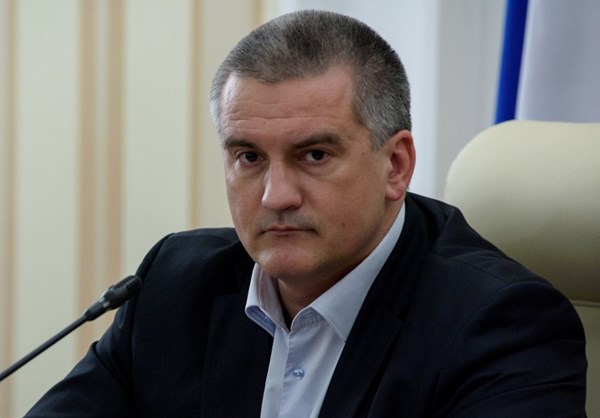Head of Crimea refuses to ask Ukrainian President to resume water supply to peninsula
The head of the annexed Crimea, Sergey Aksyonov, said that the Crimean authorities will not ask the President of Ukraine, Volodymyr Zelensky, to resume the supply of water to the peninsula.
"Besides Zelensky, no one in Ukraine can make such a decision, everything else is a talk about nothing," said Aksyonov in an interview for Russian 24 TV channel.
He added that the Ukrainian President has an opportunity to "legally take a pen and sign a document" on the supply of water to Crimea. Morally, he is not ready for it, Aksyonov believes. "But we don't ask him about it, we don't appeal to him," he said, adding that Crimea "will live without them." Aksyonov assured that no one is talking about shortage of water in the peninsula, as Ukrainian authorities claim.
In June, scientists from the Sevastopol State University and the Institute of Agriculture of Crimea discovered large reserves of fresh underground water. Water migrates through faults in the crust across the entire peninsula at depths of 900-1100 m and 350-500 m. However, according to the chief scientist of the Institute of Geography of the Russian Academy of Sciences Arkady Tishkov, these reserves do not solve the problem of water supply of the Crimean Peninsula.
Earlier, the head of Crimea announced the launch of a new water pipeline in Simferopol. The city will receive water from local artesian wells.
Kyiv blocked the floodgates of the North-Crimean Canal, which supplied water from the Dnieper river to Crimea, after the peninsula was annexed by Russia.
In February 2014, armed people in uniforms without insignias appeared in Crimea and captured the Supreme Council of Crimea, the Simferopol Airport, the Kerch ferry crossing and other strategic objects, and prevented the Ukrainian army from taking action. Initially, the Russian government refused to acknowledge that these armed people were Russian soldiers, but President Vladimir Putin later admitted it.
On 16 March 2014, a referendum on the status of Crimea was held in Crimea and Sevastopol, in which the inhabitants supposedly voted for the peninsula to become part of Russia. The outcome of the so-called referendum is not recognized by Ukraine, the EU or the US. On 18 March, Putin announced the “annexation” of Crimea to Russia.
International organizations have declared the annexation illegal and condemned Russia’s actions. Western countries have imposed economic sanctions on Russia in connection with the annexation. Russia claims to have “restored historical justice”. Ukraine’s parliament, the Verkhovna Rada, declared 20 February 2014 the start of Russia’s temporary occupation of Crimea and Sevastopol.
